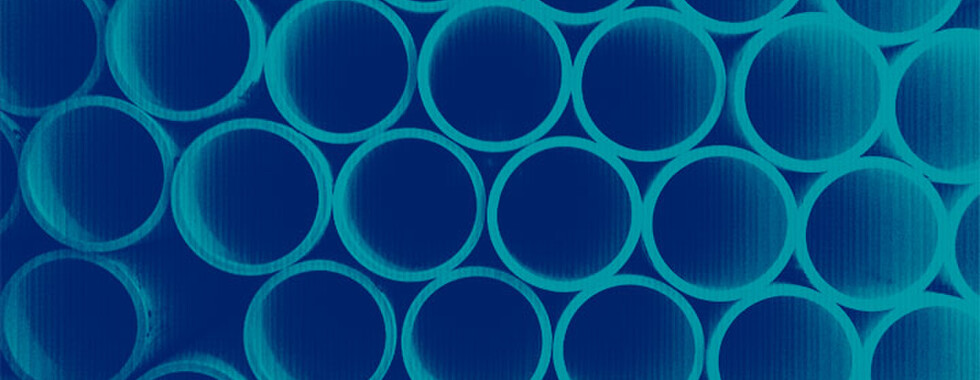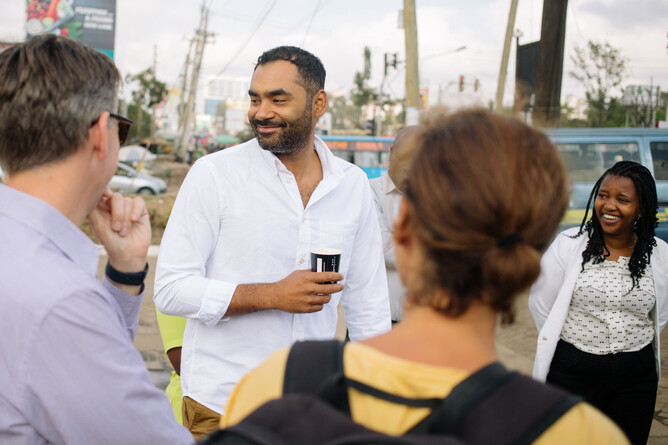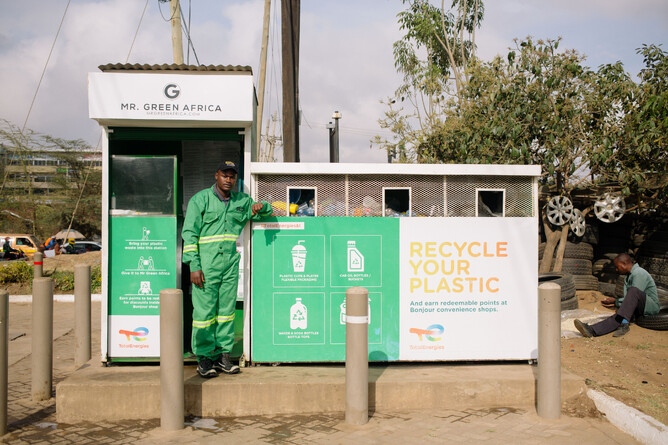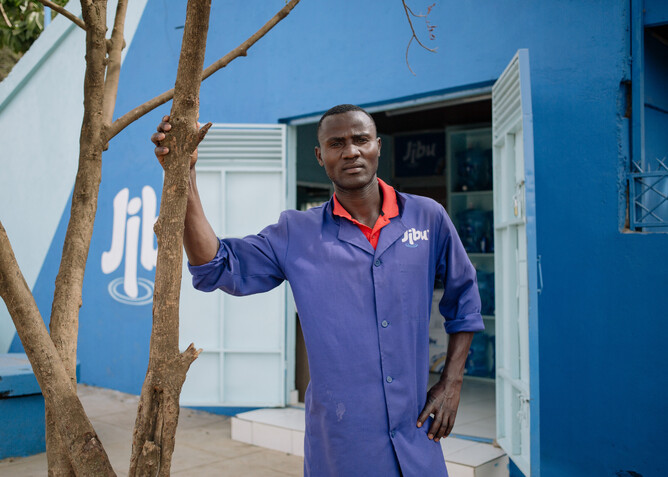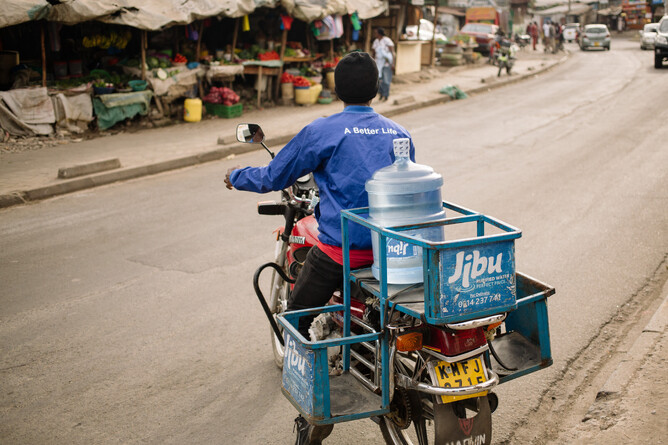Day three and my final day with the Water Unite and Wellers Impact teams, although one of our team, Louis, Water Unite's Partnership Director, is set to carry on to Malawi after Kenya with the Co-op and The One Foundation, representatives to see more on the subject of sustainability.
First on the agenda is Mr. Green Africa (MGA), a Kenyan waste collection and recycling giant who have inspired microcosms of circular economy businesses and entrepreneurship. Their operations span from urban cities to slums, all propelled forward by the initiative of destigmatising waste management and recycling, providing payment for plastic pickers and a sense of more formal employment within the sector.
We first visited a Nairobi-based collection point where we met Kieran, MGA’s CEO and Founder. Originating from a finance background, Kieran saw the untapped potential of setting up an enterprise like this in East Africa, whilst also observing the good that it can do both socially and environmentally.
We then travelled to the Kawangware slum collection point. We were told that many of the residents live here under the “radar” without identity cards. Support services for these people are often run by “well-wishers” rather than the government, so help is incredibly limited, often short of funding and hard to access.
The MGA collection points use different forms of payment systems for reimbursing plastic collectors, driven by what the community would need most. In their Kawangware slum area, they use a cash-based system, as opposed to the point based system at the Nairobi collection point, in exchange for the plastic at 26 KES per kilogram of hard plastic, and 17 KES for light plastic.
Their business model allows individual entrepreneurs to create their own recycling-based network, in which they can organise people to bring plastic to them in exchange for payment. We were lucky enough to meet John in Kilimani, a plastic aggregator who has been working for MGA since 2017. John says he gets his daily income from this work, and aspires to have his own company like MGA. A small plastic collector may aggregate around 10-15 kg of plastic per day.
We returned to Nairobi to visit the plastic processing factory, which at current capacity can process a gargantuan amount of plastic - 3000 tonnes annually and around 500 kg/hour, although MGA aspires to double its daily handling capacity. We were walked through the process end to end, from the types of plastic they are able to sort and process, to the final product. The MGA operations were something quite special to behold.
We headed out on our final stop on Water Unite’s sustainability investment tour to Jibu, a water franchise business that spans across eight total countries, including Rwanda, Kenya, DRC and Ghana.
At the corporate hub we met Tim Kasperidus, Jibu COO, as well as the rest of the corporate team, who explained how the business model worked. Jibu itself does not sell water directly, however, like MGA, enables the young entrepreneurs to shine through creating their own business by selling affordable, clean water. Opportunity and meaningful business, along with a unique, standout brand, are Jibu’s unique selling points.
Jibu provides franchisees with the equipment to process water to rid it of disease and impurities alongside the bottles to sell the water in, discouraging single use plastics and promoting their sturdier 20L bottles.
With 168 franchises in total and a total network of 5 times that size and 400,000 daily consumers, Jibu has around 30-40 franchises in Kenya, and are strong advocates for female-owned franchises. Their corporate team informed us that on average, women engage with the business better; they know their customers, run their operation more efficiently, have better staff treatment and view their franchise as their “main hustle”, as opposed to a side business.
We ventured out to a Jibu franchise point where we met a franchisee who told us about his business. He revealed that the COVID-19 pandemic led to his rising entrepreneurship, a concept that I’m sure many people across the world experienced. He ran the franchise seven days a week to sell the product to clients who were typically families and businesses in the area. The brilliant thing about businesses such as MGA and Jibu is that you can see a wealth of micro businesses and the interactions and opportunities they create in real time.
Alongside water having unreliable access, the franchise owner spoke of water creating health issues in the local community. This isn’t news for many people but nonetheless was devastating to hear about first hand and see the reality of what is often take for granted. The devastation was overpowered by the sense that Jibu is making a huge difference to many people's lives and was making a mark as a force for good in the community. Whilst we saw other water selling businesses spread around Kenya, the management of Jibu is set out to help these entrepreneurs thrive, including trial periods for potential franchisees, dealing with Kenyan regulators, and marketing a very powerful brand.
Over the course of this trip, we have seen beauty, strife and innovation take place across Kenya. It was truly brilliant and vital for some of our team to finally meet our investees in person and build stronger relationships with them, to understand how their business models work on the ground level and to be able to humanise communication, which up until now has been through a screen for many of us.
We have seen the good and positive impacts our investees have made on communities, supply chains, families and other beneficiaries. Our vision for clean water and sanitation for people and planet has been strengthened and our mission remains clear.
